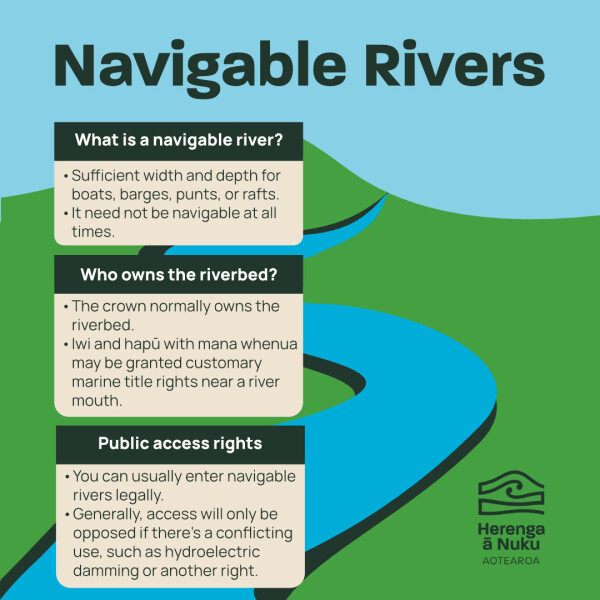Marine and Coastal Act court case doesn’t change public access rights
In a recent court case, the Supreme Court has confirmed that iwi and hapū can be granted customary marine title over navigable riverbeds where they form part of the marine and coastal area.
In the case of Whakatōhea Kotahitanga Waka (Edwards) and Others v Ngāti Ira o Waioweka and Others, the Court found that the Coal Mines Acts of 1979 and 1903 did not extinguish Māori customary rights to the beds of navigable rivers. The court concluded that "the beds of navigable rivers form part of the common marine and coastal area as defined in the Marine and Coastal Area (Takutai Moana) Act 2011, and [customary marine title] recognition orders may extend to them".
It is important to note that none of this changes people's public access rights to the marine and coastal area or to riverbeds.
Section 26 of the Act guarantees that everyone can continue to have free public access on the marine and coastal area, even if a mana whenua group's customary rights have been legally recognised under the Act for the area.
The Marine and Coastal Area (Takutai Moana) Act 2011 has also been in the public spotlight recently, following the Government’s announcement that it plans to amend the Act to set a higher threshold for granting customary marine title.
Neither this recent court ruling or the proposed government law changes will remove public access to the marine and coastal areas. Everyone can continue walking, swimming, sailing, kayaking, and fishing in the common coastal and marine areas. The rules about recreational fishing remain unchanged.
Read about public access to marine and coastal areas


